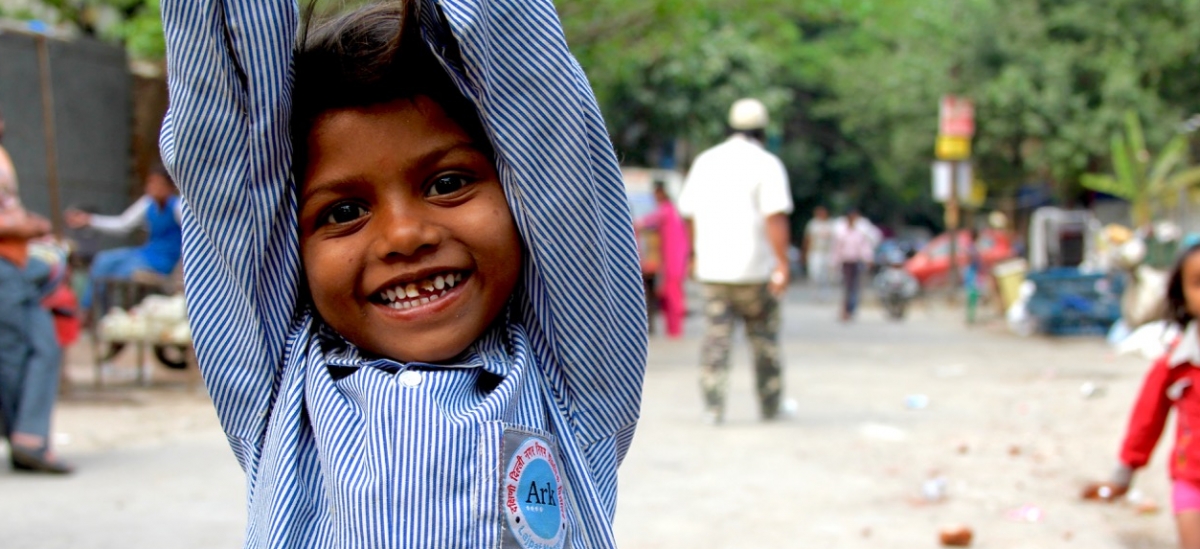Since July 2015, Ark has been working with Dhanpatmal Virmani Education Trust to operate a school in Lajpat Nagar III, Delhi.

Lajpat Nagar is located on a non-descript street, situated between five low-income communities. It is a government school run in partnership by Ark and the South Delhi Municipal Corporation, serving a mixture of Hindi, Bengali and Tamil-speaking families.
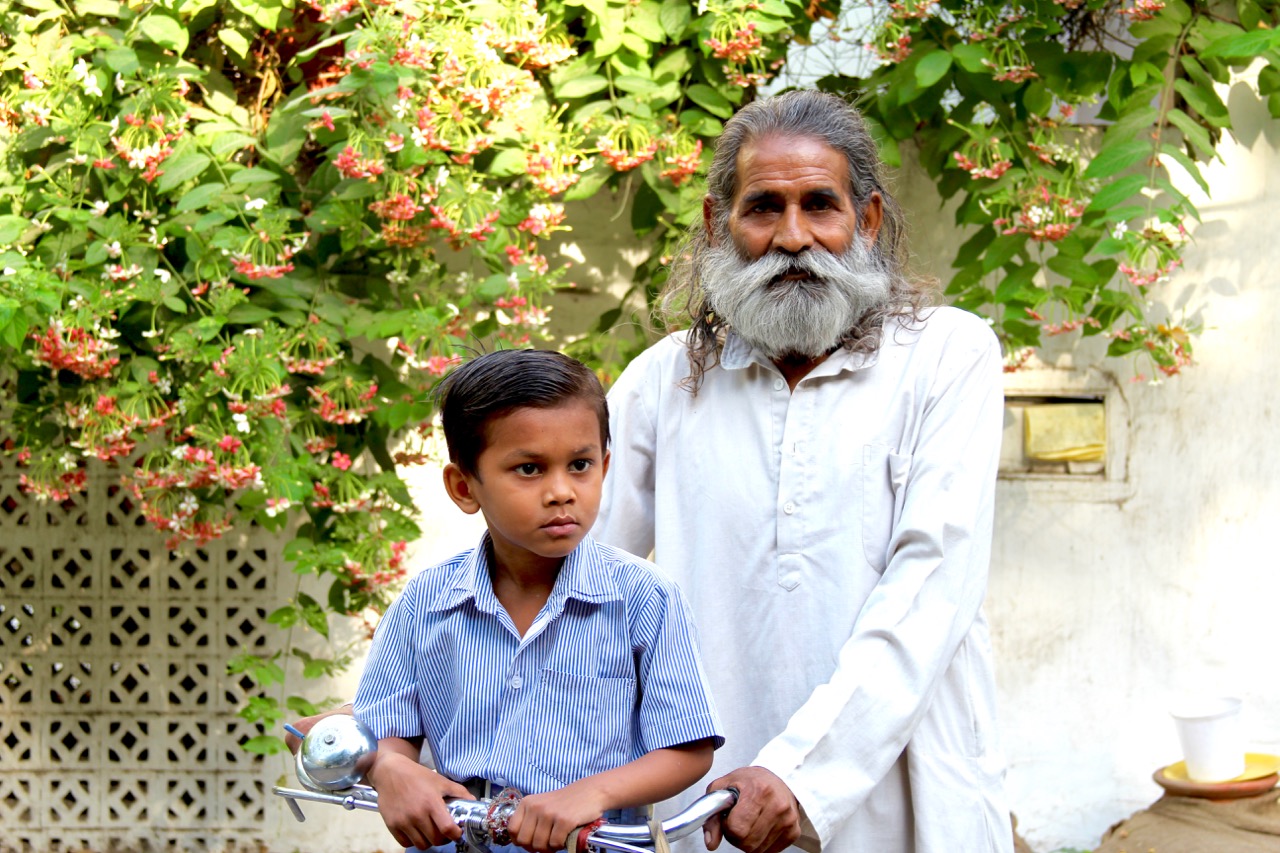
Pictured above is Prithvi, who takes his grandson to the school by bicycle. "My home is 16 kilometres away from the school but I bring the child every day and take him back in the afternoon on my cycle. This is a very good school, they take very good care of the children here and parents are respected."
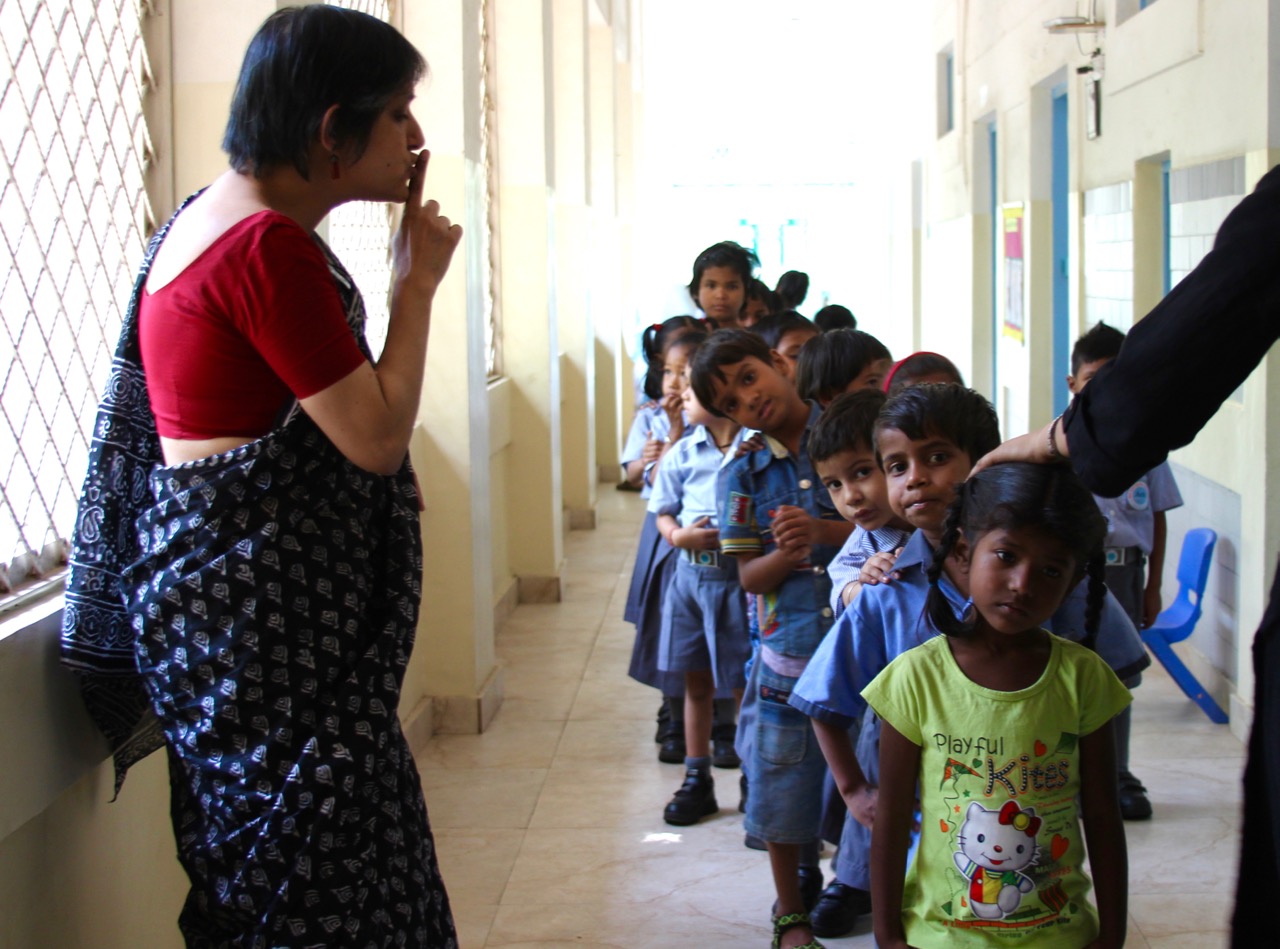
Headteacher Urmila Chowdhury helps the children queue up quietly in the morning. There are around 140 students enrolled at the school, many of whom have never been in formal education before. "This is not a typical Indian school," says Ms Chowdhury. "What we're doing here is counter-cultural. In most Indian schools the emphasis is on rote learning. We emphasise activity-based learning and help the children learn how to think and explore. They learn to understand and to apply what they learn. We also connect very closely with the community and their families. We build a school-home link to help us teach the children better. That's not usual in India."
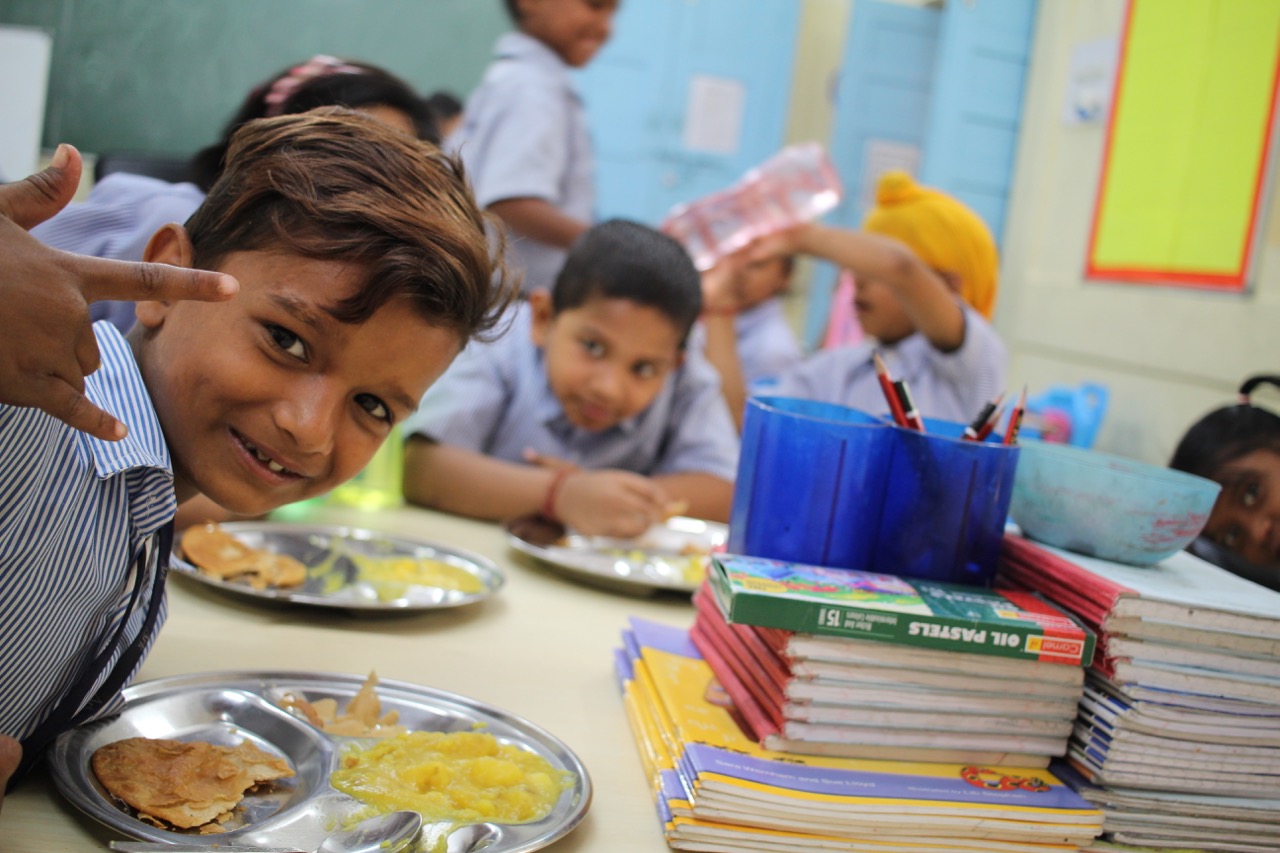
Each day begins with breakfast for all of the students, and there is a second meal at the end of the day before they are sent home. Many children who come into the school have suffered from malnutrition, and the guarantee of two healthy meals each day helps keep them focussed.
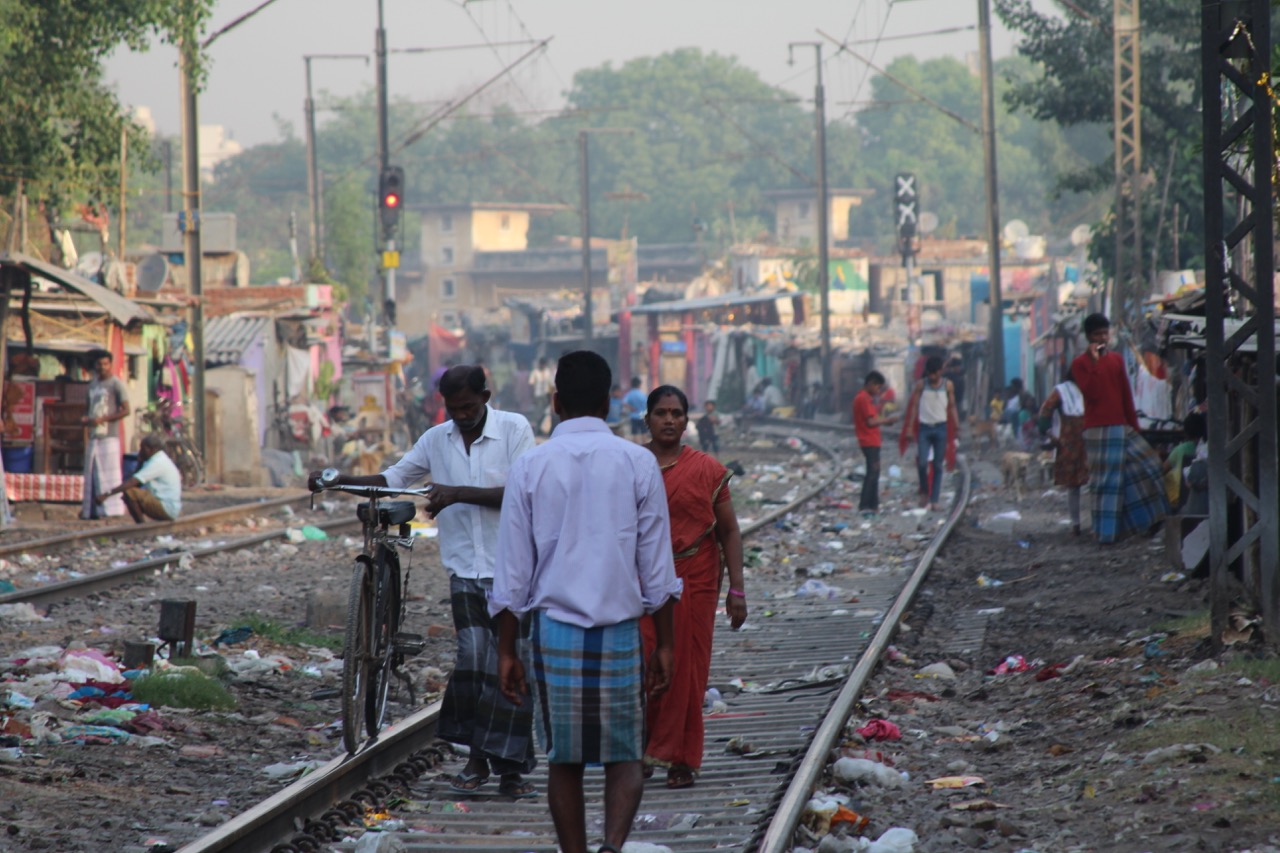
Pictured above is Jal Vihar Camp, an encampment on either side of an active railroad track where some of our students live with their families. There is no sanitation, and very limited electricity or running water. It is from underserved communities like this that Lajpat Nagar draws its students.

Pictured is Ravi, a student in Grade 2 from Jal Vihar Camp. Ravi comes from a Tamil-speaking family, and had a great deal of difficulty adjusting to being in school. For the first two and a half months, he suffered from severe separation anxiety and refused to enter his classroom. He spoke only Tamil (the school is run in Hindi with English taught as a second language) and this language barrier contributed to his anxiety.
Now, he is an active participant both inside of class and with the other children during play time. He speaks and understands quite a lot of Hindi and continues to progress in basic English. His results on his English phonics assessments have increased dramatically and his attendance rate is 100%.
Ravi's father says: "Our child refused to go to school for the first three months, then slowly he became more steady. The teacher and principal worked with him. Now he speaks Hindi a lot and gets ready for school without giving me any trouble. He has changed a lot. He can still be a little naughty sometimes, but that's ok."
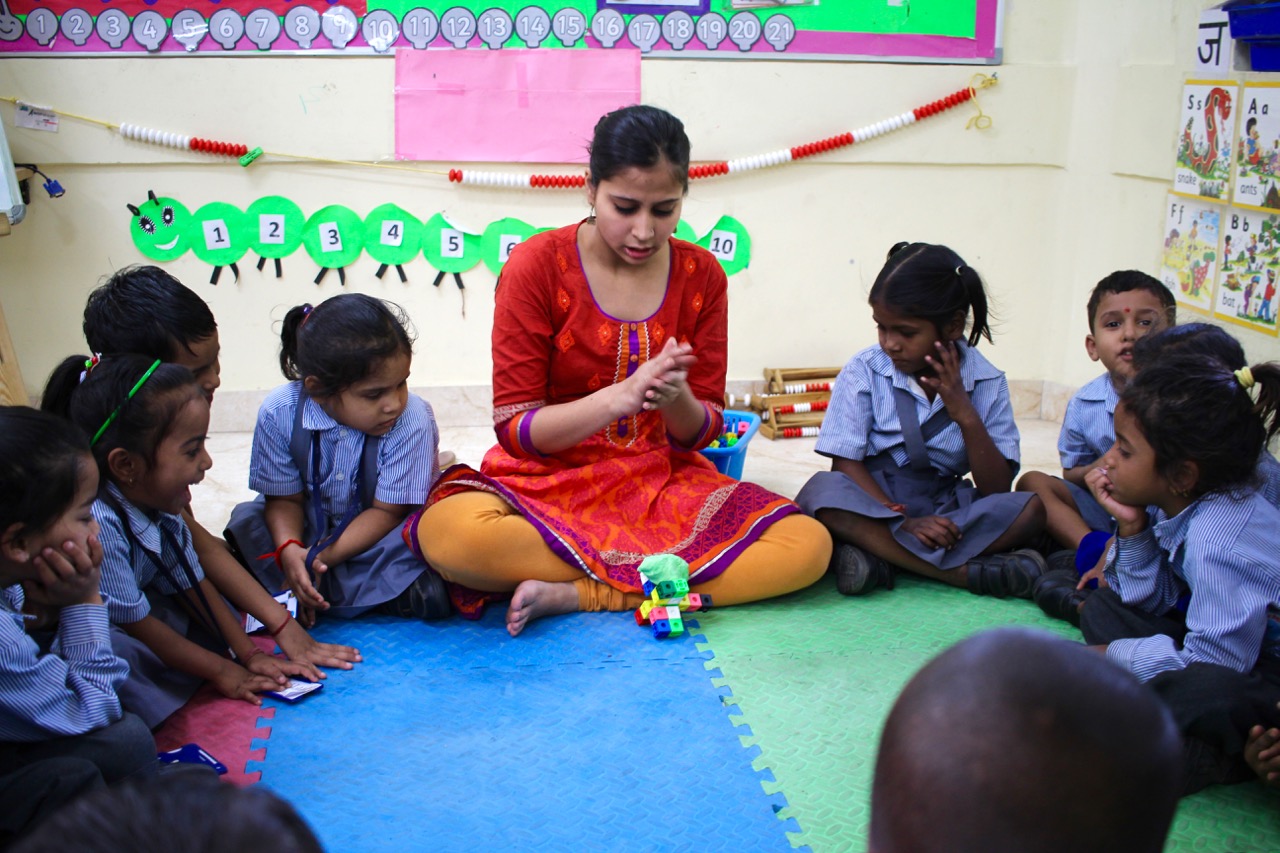
Students are taught using interactive techniques. In many cases, some of the students have to 'learn how to learn.' In India, where classroom lessons rely on rote learning and memorisation, this kind of approach is very uncommon and some parents expressed concerns that it appeared their children were "playing" rather than learning. "My children like it here a lot," says Rekha, a mother of two children attending the school. "The teachers teach in a way that the students understand. They don't get bored. Now my children can speak in English, which I could not have done for them on my own. Whatever they learn, they come back home and share it with us."
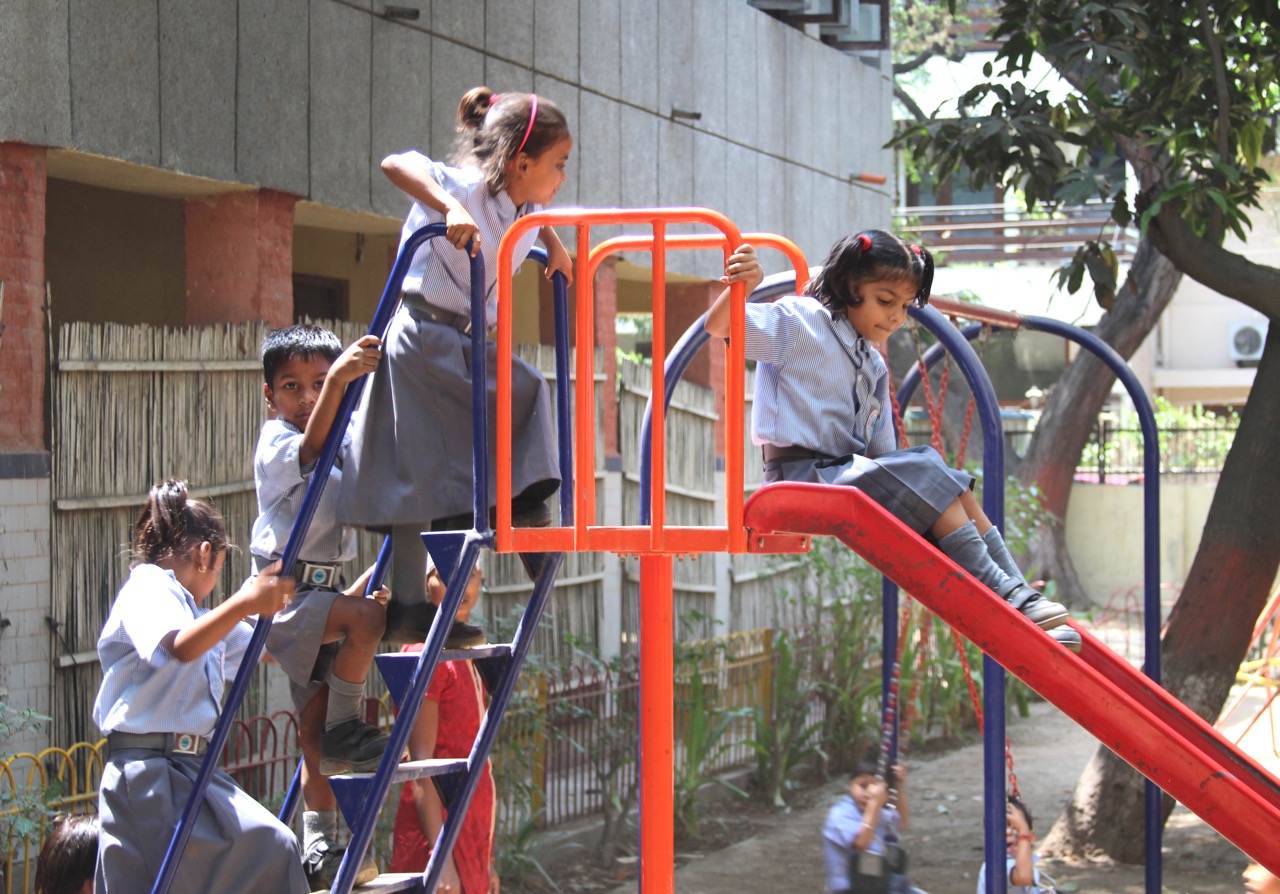
The school day lasts from 8am until 1.30pm, and there is plenty of time for playing as well as learning.
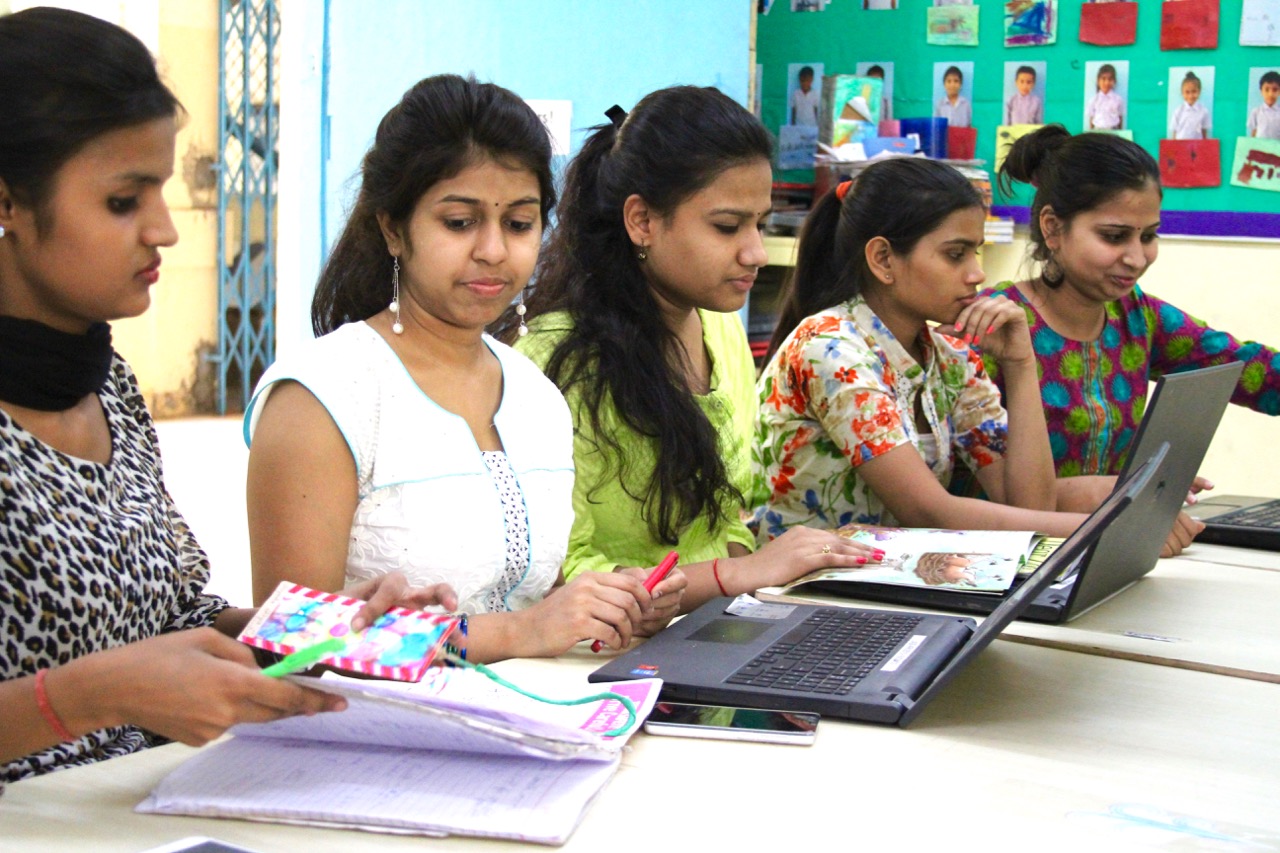
Teachers at Lajpat Nagar school were selected from a pool of more than 400 applicants. They were all given an additional five-week training course before the school opened, supported by Ark's Teacher Training Programme. Weekly staff development meetings ensure that everyone is constantly learning. "I didn't receive as much in depth training even during my time in teaching college," says Akanksha, one of the teachers. "But some of our children have never been to a school before and planning in such a situation is tough, so we have to make a plan for every student. I had to learn many new concepts, on how to manage groups of children, but still work with individual children."
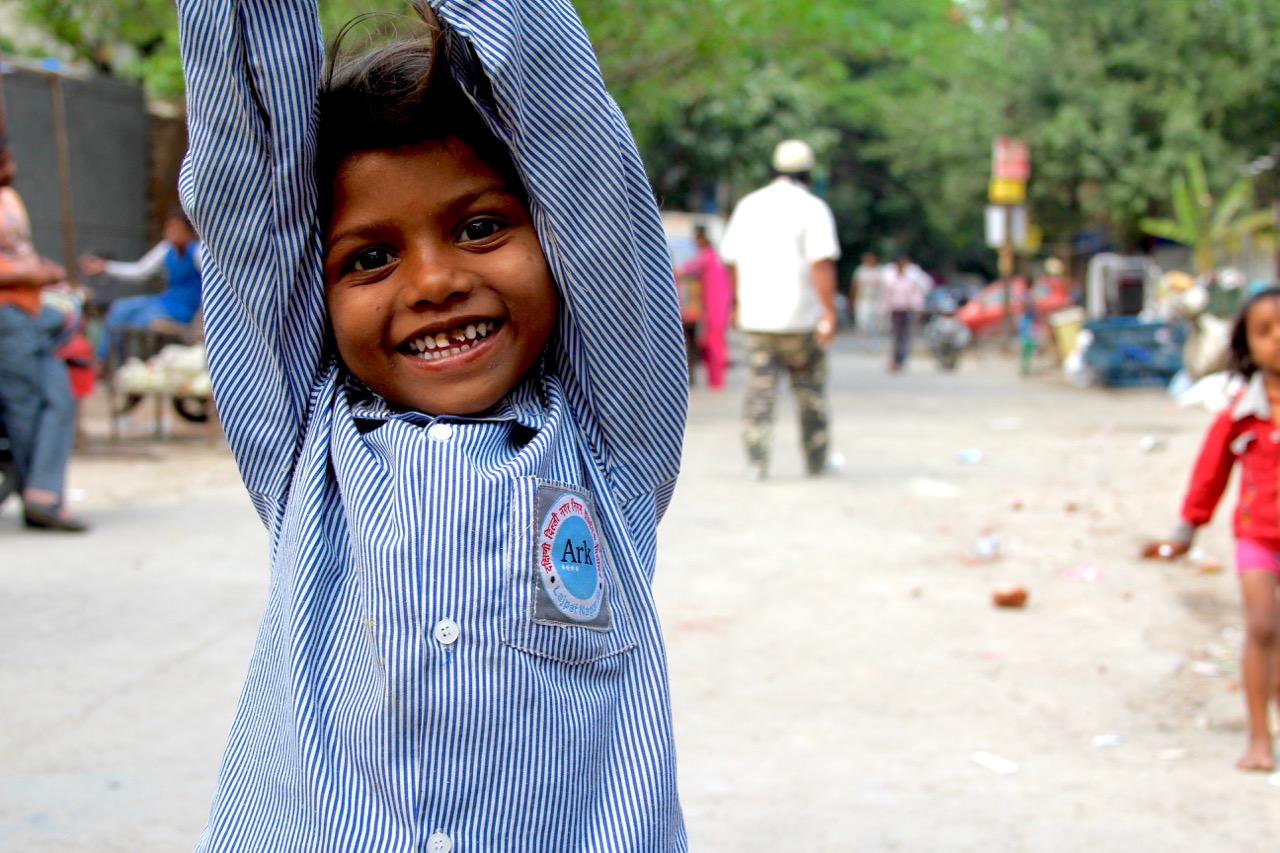
Lajpat Nagar is now entering its second year. You can find out more about the school here.

